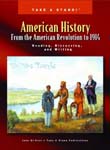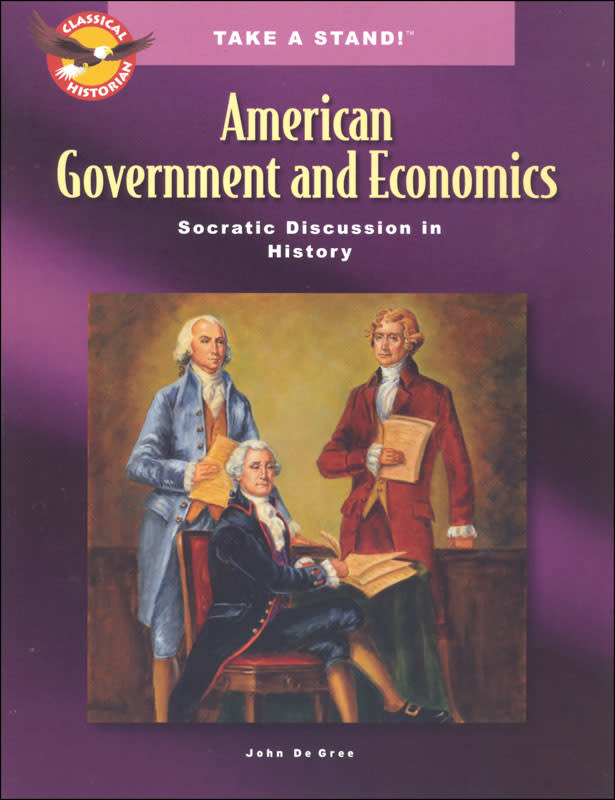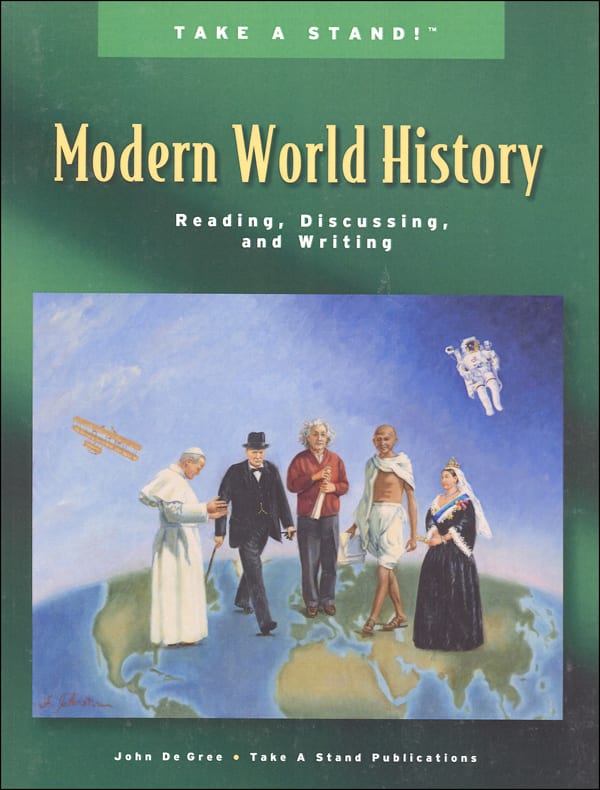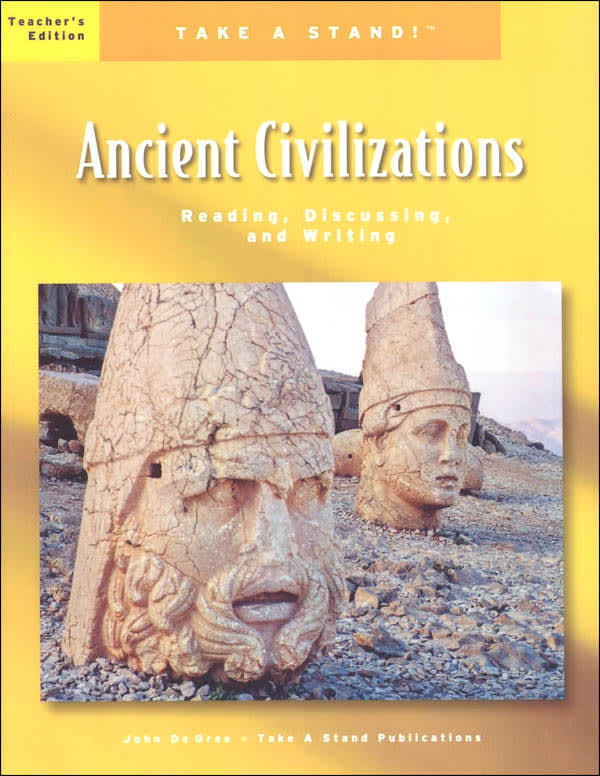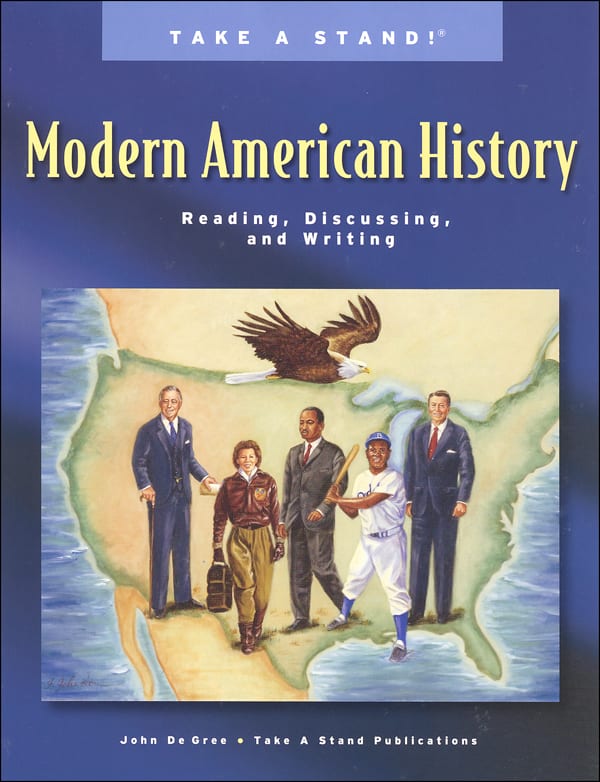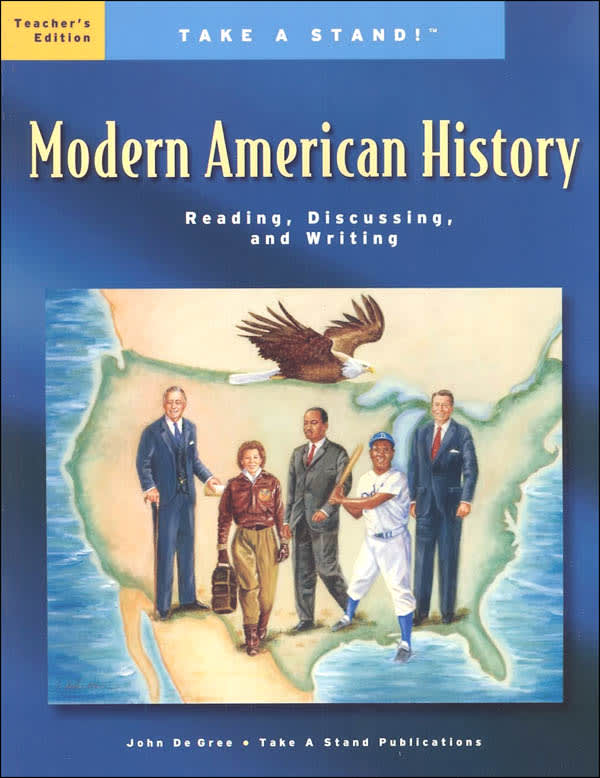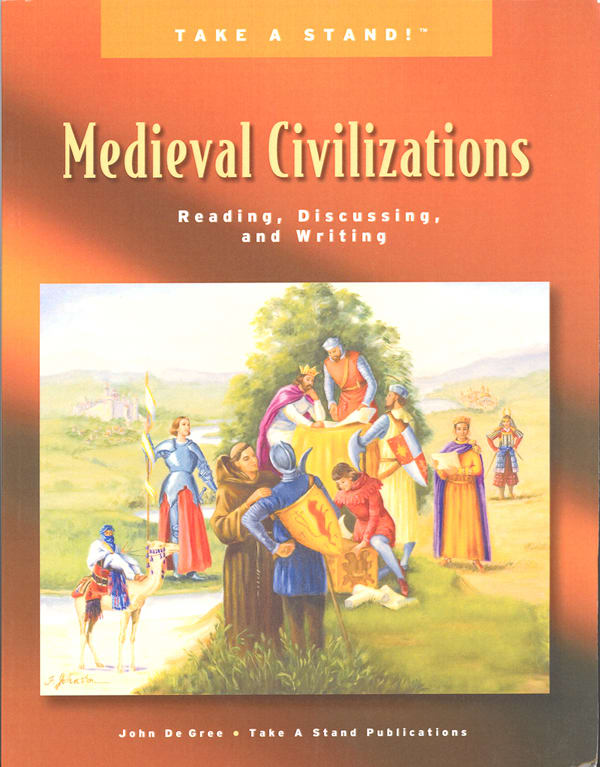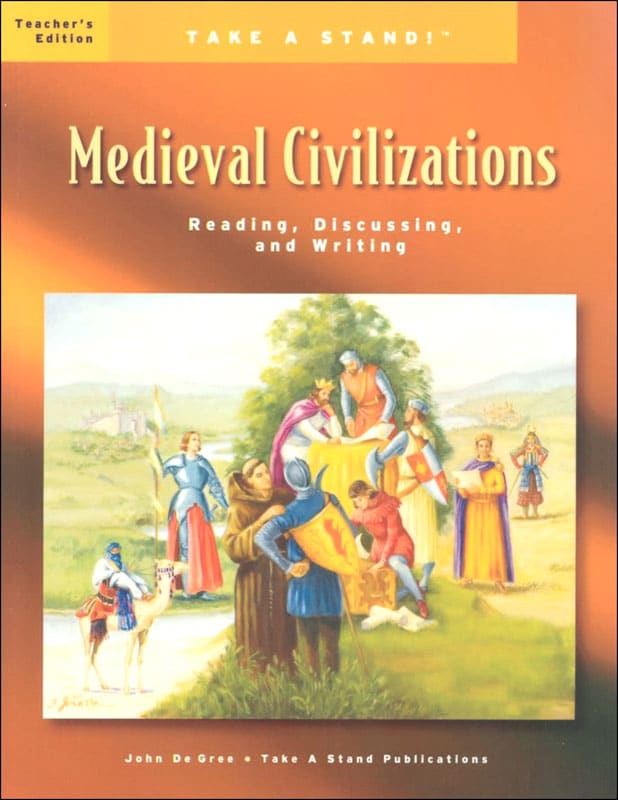Classical Historian publishes their own teacher guides and student workbooks for history courses that are used with textbooks from other publishers as well as ones they publish themselves. The Classical Historian courses teach students how to read with discernment, gather information, analyze information, and discuss and write about what they have studied. They do so within the context of history courses covering different eras. These courses implement classical education strategies such as Socratic discussions and analytical writing. Classical educators will note that the methods used are appropriate for both the dialectic and rhetoric stages. Each course should take a year to complete.
For grades six through nine, there are three courses:
- Ancient History
- Medieval History
- American History (The Story of Liberty which is reviewed separately)
Five courses are available for high school students, although some overlap so that you can study only the modern periods of either world or U.S. history if you wish.
- World History: 3000 BC to the Present
- Modern World History: 1789 to the Present - opens with a review of western political thought then covers the "Age of Revolution" from the 1600s through the Cold War
- American History: 1492 to the Present
- Modern American History: 1865 to the Present - covers Reconstruction then selected topics up through "Nixon and Watergate" and "Technology as a Cause for Change"
- American Government and Economics - a classical approach to government and economics (Reviewed separately)
A few pages at the beginning of each teacher guide explain the philosophy of the program. The second section of each guide provides practical information, such as required course components, the time required for lessons and homework, enrichment ideas, and directions for end-of-semester oral presentations. Part three of the guide lays out 32 week-long lesson plans. The companion student workbook for each guide is essential for students to be able to complete course assignments.
Classical Historian has selected a core textbook (and sometimes a second book) to be used along with each set of a teacher guide and a student workbook. Students might also do additional research using other resources.
While each teacher guide provides lesson plans and assignments, the student workbook for each course guides students in their reading and research as well as through discussions and extensive writing activities. Students are presented with very brief statements about a key event in their workbook, then they are challenged to research, discuss, and write in response to a question—to take a stand and make an argument for a position.
For example, the Week Thirty lesson in the Ancient Civilizations course has to do with the fall of the Roman Empire. The question students need to read about and take a position on is, "Based on the evidence you researched, what were the two most important reasons for the fall of the Roman Empire?" Three prewriting forms follow. One is headed "Reasons for the fall of the Roman Empire." A first reason is given as a freebie followed by six more blank lines for students to add six more reasons they discover in their reading and research. The second prewriting activity is headed, "Explain your reasons for the fall of the Roman Empire." Here students use a brief statement to explain each of the reasons they came up with in the first activity. Again, one explanation is supplied then there are lines for the student to add six more explanations. The third activity is a more complicated chart that has the student rate the reasons, ranking them as to relative importance. All of this helps them arrive at their two most important reasons, which they are then asked to defend.
For their research, students use the books that come in the Classical Historian bundles along with primary source documents that are available for free on the publisher's website. The more research they do, the more well-developed their information is likely to be. Junior high course bundles for the ancient and medieval periods each include only one additional book: World History Detective. These courses have students use the internet for other research. All of the other bundles have one or two source material books. World History: 3000 BC to the Present requires students to use Western Civilization by Marvine Perry. Modern World History: 1789 to the Present uses two books: Global History and Geography and The Western Experience. American History: 1492 to the Present uses A Patriot’s History of the United States. Modern American History: 1865 to the Present uses both A Patriot’s History of the United States and The Patriot's History Reader. American Government and Economics uses Basic American Government and Lessons for the Young Economist.
Originally written for classroom settings, lessons in the course guides direct students to compare their own conclusions with those of classmates and consider whether or not they want to change their own conclusions before writing their papers. Discussion with a parent or tutor can substitute for class interaction, but however you manage it, discussion is essential. Online classes for these courses are available at Classical Historian Online Academy.
After students have worked through these steps, they are ready to write their essays and pull it all together. They will first write one-paragraph responses then progress up through five-paragraph essays to multi-page essays. The instructions for each of the essays says, "In your essay, include a thesis, evidence, and explain how your evidence supports your thesis."
Because these skills are taught incrementally and students master them a step at a time, three of the Classical Historian courses are very manageable for students beginning in sixth grade. Students are given plenty of assistance with skill development and prewriting activities within the lessons. (The author assumes that students already have basic writing skills.) The types of skills addressed in these sections are distinguishing fact and opinion, finding supporting evidence, taking notes, paraphrasing, using quotations, writing a thesis statement, writing a conclusion, outlining the essay, writing a rough draft, documenting sources, and creating a works-cited page.
All of this sounds like fairly high-level work, especially for sixth and seventh graders. However, author John De Gree assures me that he has used these very successfully with junior high students, many of whom were ESL students with a very weak knowledge of history. While arguments and essays from some students might be shallow or poorly informed, the learning experience itself still takes them beyond where they would be with only a textbook. Students with a better knowledge base are able to form more complex arguments. If you use these books with high schoolers you should expect more depth of research and argumentation than you would from those in junior high. It's also important to note that assignments in the lower-level courses gradually become more challenging, and high school courses require more-complex thinking, reading, and writing.
The Classical Historian guides sometimes recommend playing games to help students review and remember information. To that end, you might want to check out the card games and memory games that Classical Historian has created. These can be used with the courses reviewed here as well as with most other courses for U.S. history, world history, and government.
Learning to Teach Classical Historian Courses
First-time Classical Historian teachers also need either the Teaching the Socratic Discussion in History DVD Curriculum or the streaming option for this course that is available to members of The Dolphin Society (which I will describe later.) This training course helps parents and teachers learn how to teach using this classical approach. The physical course has a 76-page book and a set of six DVDs with over six hours of instruction. The streaming option provides access to the same material.
On the first video, author John De Gree explains the historical and philosophical background of the Classical Historian approach. The second video covers the elements of a classical approach to history: grammar (factual historical information), the tools of the historian, research, Socratic discussion, and writing. The third video is a conference presentation where De Gree shares some of his personal background that influenced his approach and shares why and how the approach works. The fourth DVD has a practicum with students where De Gree works through tools of the historian (e.g., identifying facts and opinions, evaluating facts, and using quotations) and another practicum where he works through a sample lesson on "The Fall of the Roman Empire." (You will use the book along with the fourth, fifth, and sixth DVDs.) The last two videos teach the writing component and include guidance for evaluating student essays. There's some repetition on the DVDs, but I think this is helpful. The videos are not professional, but they are very helpful for showing how this approach actually works in homeschool settings.
Note that most of the bundled courses include a DVD with DeGree working through some of the Socratic discussions for that particular course—a big help.
The book repeats some of the information on the videos at the beginning, but most of it serves as lesson material for the teacher to work through along with the last three DVDs. The book includes instructions, forms, and grading rubrics that you can use as you teach the Classical Historian courses.
Parents and teachers who are interested can become certified Classical Historian Teachers by working through this course and teaching some students. They need to join The Dolphin Society to do this. Information on certification is included in the book.
The Dolphin Society
The Dolphin Society was created by Classical Historian to help train and support parents and teachers. Members have free access to the training videos, the video course for The Story of Liberty, and many other podcasts, videos, and newsletters. They can participate in book clubs and Socratic discussions with other members. Members get a ten percent discount on other purchases. Many additional features are being added to The Dolphin Society. You can subscribe monthly or yearly, and the first month is free.
Religious and Political Points of View
Classical Historian's mission statement says that they are, "dedicated to promoting the American experiment of self-government under law, rooted in its Judeo-Christian and Greco-Roman heritage. We believe in American exceptionalism and teach patriotism through all our materials." While this is the philosophy behind the program, Classical Historian resources can be used by those across the religious spectrum because they avoid biases both for and against religion by using a historical inquiry method. The curriculum includes questions that relate to religions without expressing belief or unbelief. For instance, the lesson in Ancient Civilizations: Student Workbook on the rise of Christianity poses the question, "Why did the Roman Empire change from persecuting Christians at the time of the death of Jesus to supporting Christians by the Fourth Century?" Students might come up with a wide range of answers and opinions depending upon their research resources and a parent's or teacher's directions. Also, remember that the parent or teacher can always add other ideas to those presented in the course.
However, most, but not all of the textbooks and other resources in the bundles, are relatively neutral regarding religion in their viewpoints to make it easier for students to form their own opinions based on information. (Of course, you can use other resources instead of or in addition to those in the bundles.) Two resources might be considered as exceptions in this regard: Lessons for the Young Economist by Robert P. Murphy, used for American Government and Economics, is written from an Austrian economics viewpoint and supports limited government intervention, and The Patriot’s History of the United States leans toward a Christian and a conservative, limited-government viewpoint.
Summary
I think the Classical Historian approach works so well because when students read and research with the questions in mind, they pay much closer attention than when reading simply to cover the material. When they have to analyze information, thinking about cause and effect and relative importance, they have moved to a much deeper level of thinking. Discussing their research and ideas with others forces them to think logically and critically. The Classical Historian courses are proving to be very popular among homeschoolers who want to engage in discussions with their children, as well as among those who want their children to both know historical information and know how to analyze and write about that information.





